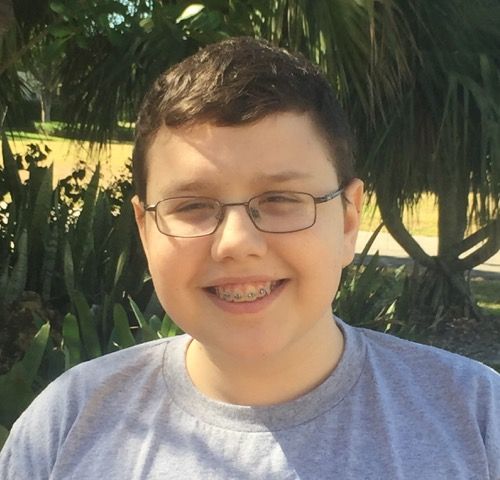Before Bobby Leithauser met neurosurgeon Harold Rekate, he had lost his ability to walk, read and have a normal life as a result of a rare neurological disorder.
But after Rekate in December operated on Leithauser at the Steven and Alexandra Cohen Children’s Medical Center in New Hyde Park for Ehlers-Danos Syndrome, a rare connective-tissue disorder, the 13-year old from Marco Island, Fla. is back to being as healthy as ever.
“No more stomach pain, nausea or dizziness,” the boy’s mother, Keri Leithauser, said. “His vision returned and his brain fog is completely gone. Bobby can read again.”
As a result of the Ehlers-Danos Syndrome, also known as EDS, Leithauser suffered from a chiari malformation, in which the skull pressed down on the brain, causing tissue to block the circulation of brain fluid and create a cavity in the spinal cord that weakened the ligaments that hold the skull in place, hospital officials said.
Upon taking an MRI on Leithauser, Rekate recommended surgery to reposition the boy’s skull, restoring proper flow of brain fluid and relieving the pressure on his brain.
“The problems that Bobby faced related to pressure in the front of the brain caused by the fact that the ligament holding the skull and spine in proper alignment was too loose,” Rekate said in describing the operation.
“This led to the top of the spine pointing backwards into the brain. In the operating room, we manually rotated his head backward and put the skull and spine in proper orientation. By doing this, we were able to successfully take all of the pressure off the brain,” he said. “This has made a huge difference in Bobby’s life.”
The surgery was a success, but Leithauser’s journey to recovery was not easy.
Leithauser first complained of frequent gastrointestinal pain at around age nine, which resulted in him having to stop playing sports and begin using a feeding tube to eat.
At age 12, he was diagnosed with dysautonomia, a nervous system malfunction that affects bodily functions such as digestion, temperature control and maintaining a healthy blood pressure.
Walking soon became difficult, and the boy was relegated to a wheelchair. He also began experiencing severe nausea, muscle and joint pain, headaches, acid reflux and issues keeping attentive.
After some time, Leithauser, a gifted student, was in so much pain he had to be removed from school.
Doctors told Keri that Bobby’s MRIs were normal, despite his weakening health – but she knew her son, and she sought other medical opinions.
Through online research, she discovered her son’s dysautonomia diagnosis was often related to EDS and chiari malformation. Eventually, she found the North Shore-LIJ’s Chiari Institute in Great Neck, which specializes in treating Chiari malformations, and it’s director, Rekate.
“I want families to understand how vitally important it is to find a neurosurgeon with expertise in this particular area,” Keri said. “Most neurosurgeons do not understand chiari and cranial setting when it develops from EDS, but Dr. Rekate is one of the few physicians in the country who understands that link and knows how to treat it.”
She said after the surgery, all of her son’s symptoms were gone. She said Bobby will undergo physical therapy to regain his physical strength.



